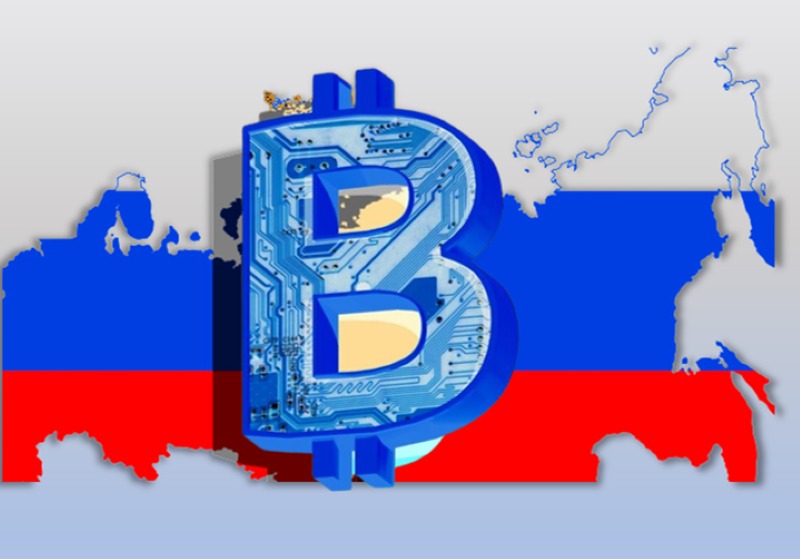Crypto is Helping Russia And Its Tycoons with sanctions around
Digital currencies might help Russia and its oligarchs in relieving the impacts of sanctions by the Western world.
In response to Russia’s intrusion of Ukraine, US President Joe Biden announced Thursday that he has approved “tough sanctions.” This endeavor debilitates its ability to direct business in dollars and other major world currencies, and include fines for five Russian banks with assets worth approximately $1 trillion. A number of Russian elites and their families will likewise be target. This is notwithstanding the sanctioned enforced recently.
In any case, any govt. that moves towards legalizing’s the crypto, and where the cryptocurrencies are now generally held, these disciplines might have less weight.
How do nations evade sanctions?
Commonly, nations use physical workarounds to evade sanctions, for example, Venezuela and North Korea’s utilization of boat to-deliver oil moves, yet digital assets, for example, digital money and decentralized exchanges might turn into the best way to deal with to keep away from fines.
“Neither tyrants nor basic human rights activistswill confront restriction on the Bitcoin Network,” said Matthew Sigel, head of digital assets research at VanEck.
Sanctions forced by the US and its NATO partners on firms and individuals could actually close them to the West. Very rich people, some of whom have recently been targeted, might have the option to stay away from those sanctions assuming that they decide to adapted digital currency, which utilizes blockchain technology to make transactions anonymous.
They could utilize digital currencies to buy goods and services and invest in assets outside of Russia; all while keeping away from banks or associations that follow sanctions and can follow their movements. while avoiding banks or organizations that follow sanctions and can track their activities.
“If two individuals or organizations’ want to do business with one other but are unable to do so through banks, they may do it using Bitcoin,” said Mati Greenspan, founder and CEO of financial consulting firm Quantum Economics. “If a wealthy individual is afraid that their accounts may be blocked as a result of sanctions, they may simply keep their wealth in Bitcoin to insulate themselves from such acts.”
Avoiding the Sanctions
Not at all like government issued money, which should be steered through third party associations that might trace, freeze, or boycott them, digital currencies can be moved starting with one individual then onto the next without respect for government punishments or different impediments.
Cryptocurrency holders may likewise make a network of wallets with different addresses across exchanges, making it staggeringly challenging to follow any movement of transactions and considerably harder to connect them back to a particular person. Besides, customers can choose crypto exchanges that are not arranged in regions that force fines and consequently are not need to adjust to regulation.
Any asset kept in crypto would be challenging to move into the fiat money warn experts, bringing in any cash that changes hands less expendable. To keep away from banks or even centralized exchanges that stick to sanctions, individuals would need to convince any services with which they carry on with work to acknowledge digital payment, which might challenge.
The Impact of Assents on Russian Very rich people
The prosperous Russians who might confront punishments are “the people who actually profited from the Kremlin’s approaches and ought to take part in the torment“In the next days, we will keep up the drumbeat of such designations against corrupt millionaires.”
So yet, none of the extremely rich people endorsed before Thursday have freely revealed whether or regardless of whether they own digital money.
Undoubtedly, legislatures might in any case place controls on crypto possessions on centralized exchanges, as per David Tawil, head of crypto investment firm Prochain Capital. He connected to the Canadian government’s new strike on crypto accounts held by truck drivers who were collecting payments to help their barricades of US-Canada line intersections and a weeks-in length protests in Ottawa.
As indicated by Brett Harrison, head of crypto exchange FTX US, accepting that digital currencies bring in tax evasion is a misconception. He contends that exchangeshave access to technologythat permits them to follow and screen wallets from authorized countries.
People would likewise find it difficult to move digital forms of money to government issued currencies through centralized exchanges without being found, in this way making it harder for them to spend.
“What can be kept away from are monies leaving an exchange when sanctions are maintained endlessly,” Harrison clarified. “Everybody can see it when it ventures wherever since it’s on a public blockchain, yet regardless of whether they could move it, no exchange will allow them to change it over to a fiat, and the subsequent they do, they’ll be caught.”
As indicated by him, FTX is regularly approached by law enforcement authorities from various states and countries with subpoenas to take cash from certain locations.
The recent arrest of two people connected to the 2016 Bitfinex break exhibits how much digital currencies might be traced. The US government had the option to follow the exercises of specific wallets and, subsequently, freeze the records when they were changed into fiat currency.
The Status of Cryptocurrencies in Russia and East Europe
The legal status of crypto in Russia is evolving, with the Russian govt.planning to legitimize it to draw in worldwide investment and rescue local trade once again from the shadows; while the national bank keeps up with they are a fraudulent business model and ought to be disallowed. President Putin asked them to find a quicksolution last month, yet top government authorities presently can’t seem to settle on the best way to direct digital assets.
As indicated by a new government report, a great many Russians are now settled in this digital domain, possessing more than 22 billion in cryptocurrencies.
As per information from Singapore-based payment gateway Triple, in excess of 17 million Russians, or around 12% of the general populace, have Bitcoin. With extra sanctions not too far off, it very well might be to Russia’s greatest advantage to permit rich people to trade in crypto no matter what its lawful status may be.
“It’s okay to have contradictory opinions out there, and they’ll get to the problem when they can get to the issue,” said ProChain’s Tawil, focusing on that even the US has neglected to explain the legitimate system and rules around cryptographic forms of money.
Different nations in the previous Soviet Union are additionally turning out to be progressively inspired by digital currency. The Ukrainian parliament supported an arrangement to legitimize cryptocurrenciesa few days back, while Kazakhstan is attempting to appropriately control and tax its flourishing crypto-mining business.
The impacts of the Russia-Ukraine Battle on the stock exchange
Following Russia’s attack on Ukraine, U.S. stocks first fell, with the S&P 500 List falling as much as 2.6% and Nasdaq 100 falling as much as 20% from its record high in November. From that point forward, stocks have recuperated their misfortunes, with the Nasdaq 100 turning positive. Bitcoin fell as much as 8.5% to $34,337, expanding its misfortune to around half since its record-breaking high in November.

